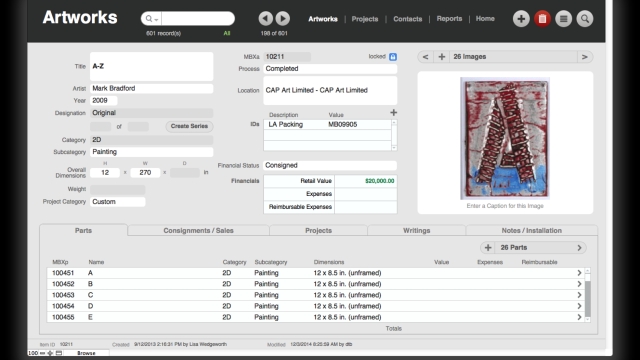In today’s fast-paced world of professional photography, staying organized and managing client relationships effectively are essential for success. As a photographer, it’s not just about capturing stunning images; it’s also about maintaining a streamlined workflow, automating tasks, and ensuring prompt communication with clients. This is where Customer Relationship Management (CRM) and studio management systems come into play, revolutionizing the way photographers run their businesses. By seamlessly integrating CRM and studio management tools, photographers can simplify their administrative tasks, streamline their workflows, and ultimately boost their business’s overall success.
Photography businesses often face challenges when it comes to managing client information, tracking leads, and handling bookings and invoices. Without a centralized system, it’s easy for vital information to slip through the cracks, leading to missed opportunities and potential losses in revenue. Thankfully, CRM software provides a solution by providing a unified platform for managing client details, tracking interactions, and streamlining the entire customer journey. From initial inquiries and bookings to the final delivery of images, CRM systems allow photographers to stay organized, build stronger client relationships, and provide a professional experience from start to finish. By harnessing the power of a CRM, photographers can focus more on their artistry and less on administrative tasks, ultimately enhancing their productivity and ensuring customer satisfaction.
Understanding CRM for Photography Businesses
Running a successful photography business requires more than just capturing stunning images. It involves managing clients, organizing schedules, and staying on top of invoicing – all while finding time to focus on your creative craft. This is where Customer Relationship Management (CRM) and studio management come into play.
CRM, in the context of photography businesses, refers to software that helps you streamline your client management processes. It serves as a centralized hub where you can store client information, track interactions, and manage appointments. A good CRM system allows you to efficiently categorize and search for clients based on various criteria, ensuring you have the right details at your fingertips when you need them.
Studio management is closely intertwined with CRM for photography businesses. It goes beyond client management and incorporates features that support overall business operations. With studio management software, you can create and send invoices, track payments, and manage your production schedule seamlessly. By automating these administrative tasks, you can free up time to focus on what you do best – capturing breathtaking moments through your lens.
Investing in a CRM and studio management solution designed specifically for photography businesses can bring numerous benefits. By centralizing your client information and automating processes, you can improve communication, build stronger relationships with clients, and elevate the overall efficiency of your business. In the following sections, we will delve deeper into the specific features and advantages these tools offer for photography professionals. Stay tuned for valuable insights on how to master CRM and studio management for your photography business.
Essential Studio Management Tools for Success
In the world of photography, effective studio management is essential to ensuring smooth operations and achieving success. With the right tools and strategies in place, photographers can streamline their processes and focus on what they do best – capturing stunning images. In this section, we will explore some essential studio management tools that can help photographers organize their workflows, handle client management, and optimize their business operations.
Photography
CRM (Customer Relationship Management)
A robust CRM system is a vital tool for any photography studio. It allows photographers to centralize and manage their client database, keeping track of crucial information such as contact details, project history, and preferences. With CRM, photographers can easily access client information, communicate effectively, and provide personalized experiences. From sending automated emails to managing bookings and appointment schedules, CRM simplifies the client management process and enhances overall efficiency.
Studio Management Software
To effectively run a photography studio, utilizing dedicated studio management software is a game-changer. This comprehensive tool provides an all-in-one solution for various aspects of studio operations, including scheduling, invoicing, and financial management. By automating tasks like appointment reminders and invoicing, studio management software reduces administrative burdens and allows photographers to focus on their creative work. Additionally, it provides valuable business insights and analytics to make informed decisions and drive growth.

Invoicing and Financial Tools
Efficient invoicing and financial management are crucial for the success of any photography business. With dedicated invoicing tools, photographers can easily generate professional invoices, track payments, and manage billing cycles. These tools streamline the financial processes, minimizing errors and ensuring timely payments. Additionally, financial tools integrated with studio management software can provide insights into profitability, expenses, and revenue trends, enabling photographers to make strategic financial decisions and optimize their business operations.
By leveraging these essential studio management tools, photographers can take their businesses to new heights. From maintaining strong client relationships to optimizing workflows and financial processes, these tools provide the necessary foundation for success in today’s competitive photography industry. Stay tuned for the next section, where we will delve into additional strategies to streamline your studio’s success.
(Note: Special characters such as bullet points are not allowed, as per the instructions given.)
Efficient Invoicing and Client Management Practices
In order to achieve streamlined success in your photography business, efficient invoicing and client management practices are crucial. By focusing on these aspects, you can ensure smooth transactions and maintain strong relationships with your clients. Here are some best practices to consider:
Clear and Detailed Invoices:
When it comes to invoicing, clarity is key. Make sure your invoices provide all the necessary details, including the description of services, rates, and any applicable taxes or discounts. Clearly state the payment terms and due dates to avoid confusion. By providing a clear and concise invoice, you not only demonstrate professionalism but also make it easier for your clients to understand and process the payment.Timely and Friendly Communication:
Effective client management involves maintaining open lines of communication. Responding promptly to client inquiries and being proactive in providing updates build trust and confidence. Remember to be friendly and approachable in your communications, as this will help create a positive experience for your clients and encourage repeat business.Efficient Client Database:
A well-organized client database plays a vital role in efficient client management. By utilizing a CRM system or studio management software, you can store and manage client information in a structured manner. This allows you to easily access client details, track interactions, and stay organized. With a comprehensive client database, you can provide personalized services and tailor your offerings according to their preferences and needs.
Implementing efficient invoicing and client management practices ensures that your business operations run smoothly and your clients are satisfied. By investing time and effort into these aspects, you set a solid foundation for success while fostering long-term relationships with your clients.

